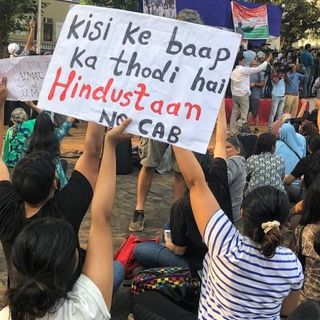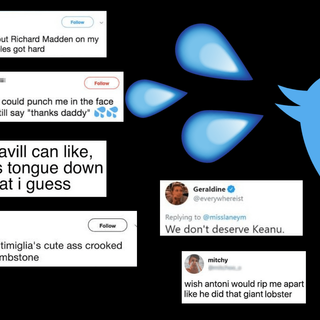In The Buzz Cut, we bring you a round-up of all the weird, controversial, and wonderful stories we’ve been reading all week.
In new movie Bombshell, Charlize Theron navigates sexual harassment at work as Fox News host Megyn Kelly, as part of three women who sued then-CEO and Chairman Roger Ailes of sexual harassment. In the process, she understood her own #MeToo experience.
*
Greta Gerwig’s Little Women is out and men are not watching it. According to producer Amy Pascal, there’s an unconscious gender bias at play that might make men think the stories of Jo, Beth, Amy and Meg are not for them. Well, they’re wrong.
*
For years now, J.K. Rowling has been dropping hints of her transphobia — a liked tweet here, a plot full of transphobic subtext elsewhere. In coming out with full support for a known trans exclusionary radical feminist (TERF) author, Maya Forstater, Rowling has cemented herself as a TERF too.
*
We’re nearing the end of the decade and can effectively say this was the year of the digital revolution, with the proliferation of social media platforms and innovations in the field of digital technology. What has it done to us?
*
Sex workers often use glamor — fashion, make-up, accessories — to portray a persona to their clients that is different from their person, mostly as a shield to protect the personal from the professional. How exactly does this play out in movies?
*
We’re increasingly using corporate jargon — “I’m at capacity,” or “I have no bandwidth” — to engage with friendships and relationships. How does the cut-and-dry language affect the connections we’re trying to make?
*
There’s a new manga character in Japan challenging the country’s menstruation taboos — it’s a pink blob, with bright red lips, and their name is Little Miss Period.
*
Food photography has long excluded Black and West African food, which has rendered food coming out of Black cultures largely unappealing to look at and lacking exposure. Black photographers are now attempting to decolonize the aesthetics of food.
*
There is a slew of violent, disturbing content on YouTube and Google, and there exists a dedicated group of moderators assigned with the task of removing it from these platforms. The work, however, comes with a side of mental health problems — mainly, post-traumatic stress disorder.




